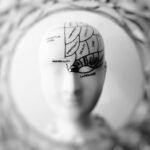Cerebral hypoxia, often referred to as brain hypoxia or brain anoxia, is a medical condition characterized by a reduced oxygen supply to the brain. It can lead to brain damage or even death if not promptly treated.
Table of Contents
Neurological disorders
- How Cerebral Hypoxia can lead to brain damage?

- Bipolar Disorder

- Mononeuropathy

- Poliomyelitis

- Neurodegenerative disorders

- Huntington’s disease (HD)

- Cerebral edema

- Migraine

- Brain Hemorrhage

- Epilepsy

- Polyneuropathy

- Encephalitis

- Increased Intracranial Pressure

- Types of Brain Tumors You Should Know About

- Brain Stroke: Symptoms, Diagnosis and Treatment

The consequences of cerebral hypoxia can range from mild cognitive impairment to severe brain damage, depending on the extent and duration of oxygen deprivation.
Common symptoms and effects of cerebral hypoxia may include confusion, memory problems, difficulty concentrating, loss of consciousness, seizures, and, in severe cases, coma or death.
Read more:
Who is more likely to get Cerebral Hypoxia?
Cerebral hypoxia, often referred to as brain hypoxia or brain anoxia, is a medical condition characterized by a reduced oxygen supply to the brain. It can lead to brain damage or even death if not promptly treated. There are two primary forms of cerebral hypoxia: hypoxic and ischemic.
Causes and Risk Factors
Hypoxic Hypoxia:
Hypoxic hypoxia occurs when there is a decrease in the oxygen content in the blood, which can be caused by various factors, including:
- Respiratory problems: Conditions like asthma, chronic obstructive pulmonary disease (COPD), or airway obstructions can limit oxygen intake.
- Low oxygen environments: High altitudes or places with reduced atmospheric oxygen levels can lead to hypoxic hypoxia.
- Carbon monoxide poisoning: Carbon monoxide (CO) can displace oxygen in the bloodstream, causing hypoxia.
Ischemic Hypoxia:
Ischemic hypoxia, also known as cerebral ischemia, occurs when there is a reduction in blood flow to the brain. It can result from:
How is Cerebral Hypoxia diagnosed?
Cerebral hypoxia is diagnosed through a combination of clinical evaluation and diagnostic tests. Physicians assess a patient’s medical history, symptoms, and physical examination to identify potential causes and signs of oxygen deprivation to the brain.
Diagnostic tests such as arterial blood gas analysis, pulse oximetry, and neuroimaging (CT or MRI scans) help confirm the diagnosis by measuring oxygen levels in the blood and detecting any structural brain abnormalities.
An electroencephalogram (EEG) may also be used to assess brain function. Early and accurate diagnosis is crucial to initiate prompt treatment and prevent potential brain damage or further complications.
Diagnosis of Neurological Disorders
How is Cerebral Hypoxia treated?
Neurologists in Mumbai
- Dr. Deepak Solanki- Neuroanaesthetist at Artemis Hospitals, Gurugram

- Dr. Prashant Goyal- Psychiatrist at Balaji Action Medical Institute, Delhi
- Dr. Amit Kumar Shridhar- Spine Surgeon at Balaji Action Medical Institute, Delhi
- Dr. Ashwin Garg- Neuro Radiologist at Balaji Action Medical Institute, Delhi
- DR. TARUN MATHUR- Neurologist and Interventional Neurologist at Paras Hospital, Udaipur

- Dr. Pallavi Joshi- Clinical Psychologist at Balaji Action Medical Institute, Delhi
- Dr. Prachi- Clinical Psychologist at Balaji Action Medical Institute, Delhi
- DR. ANURAG LAMBA- Neurologist at Paras Hospital, Panchkula

- Dr. Aniruddh K Purohit – Neuro and Spine Surgeon at Aster Prime Hyderabad

- Ms. Archana Sharma- Clinical Psychologist at Balaji Action Medical Institute, Delhi

- Dr. Vishnu Gupta- Neuro Surgeon at Fortis Hospital, Punjab

- Dr. Vivek Vaid- Neuro Surgeon at Fortis Hospital, Jaipur

- Dr. Utkarsh Bhagat – Neuro Surgeon at Fortis Hospital, Haryana

- Dr. Sweety Trivedi- Neurologist at Fortis Hospital, Noida

- DR. SWETA SINGLA- Neurologist at Venkateshwara Hospital, Delhi

- Dr. Sumit Singh – Neurologist at Artemis Hospitals, Gurugram

- Dr. Soundappan V- Neuro and Spine Surgeon at Fortis Hospital, Chennai

- Dr. Sonal Gupta- Neuro Surgeon at Fortis Hospital, Delhi

- Dr. Shailaja Pokhriyal- CLINICAL PSYCHOLOGIST at BLK Hospital, Delhi

- Dr. Shanti Shankar Praharaj- Neuro and Spine Surgeon at Fortis Hospital, Karnataka

- Dr. Satish Satyanarayana- Neuro and Spine Surgeon at Fortis Hospital, Karnataka

- Dr. Sandhya Koche- Neurologist at Balaji Action Medical Institute, Delhi

- Dr. S Rajesh Reddy – Neuro Surgeon In Hyderabad

- Dr. SANDEEP VAISHYA- Neuro Surgeon at Fortis Hospital, Haryana

- Dr. Rohit Gupta- Neurologist at Fortis Hospital, Haryana

Treatment for cerebral hypoxia involves addressing the underlying cause and providing oxygen therapy to increase oxygen levels in the blood and the brain.
The earlier treatment is administered, the better the chances of preventing permanent brain damage. Rehabilitation and therapy may be necessary for individuals who have suffered brain damage due to cerebral hypoxia.
It’s crucial to seek immediate medical attention if you suspect someone is experiencing cerebral hypoxia, especially in cases of cardiac arrest, stroke, or severe respiratory distress.





































